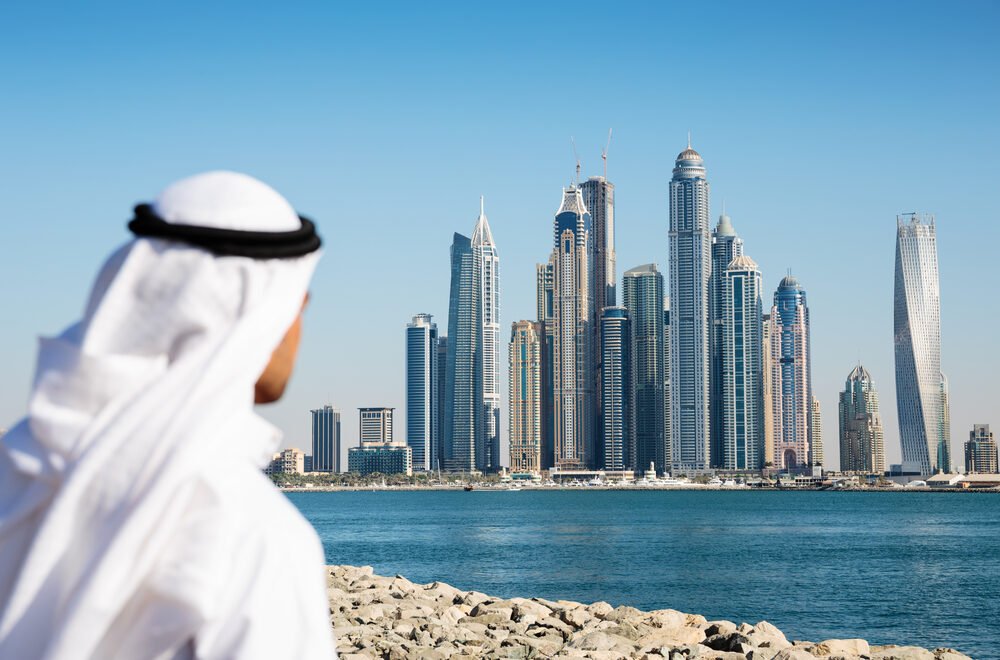Now Reading: Why UAE Companies Are Finally Prioritizing Employee Mental Health Support 2025
-
01
Why UAE Companies Are Finally Prioritizing Employee Mental Health Support 2025
Why UAE Companies Are Finally Prioritizing Employee Mental Health Support 2025

Table of Contents
In recent years, the importance of mental health in the workplace has gained global attention. The United Arab Emirates (UAE), known for its fast-paced corporate environment and ambitious economic goals, is now catching up with this essential movement. More UAE companies are introducing mental health support programs to ensure their employees stay mentally and emotionally healthy.
This positive shift reflects a growing awareness among business leaders that productivity, creativity, and overall job satisfaction improve when employees are mentally strong and well-supported.
The Rising Need for Mental Health Support in the UAE

The working culture in the UAE is highly competitive. Long hours, tight deadlines, and high expectations can lead to stress, anxiety, and burnout. According to a recent survey by the YouGov platform, more than 60% of employees in the UAE report experiencing stress at work regularly. Many say they feel overwhelmed by their workload or fear losing their jobs.
In addition to the professional stress, personal issues such as being away from family (since many workers in the UAE are expatriates) add another layer of emotional struggle.
The COVID-19 pandemic made matters worse. It changed work patterns, forced isolation, and caused uncertainty in the job market, which further affected people’s mental health. Companies realized that if they didn’t address these problems, productivity would suffer.
How UAE Companies Are Responding

Thankfully, employers in the UAE are taking mental health more seriously. Both government-owned and private companies are introducing employee assistance programs (EAPs) and mental wellness initiatives.
1. Workshops and Training Sessions
Many companies now offer workshops that teach stress management, mindfulness, emotional intelligence, and resilience. These sessions help employees handle daily challenges in healthier ways.
Some firms invite psychologists or wellness experts to guide teams on handling workplace pressure, dealing with anxiety, and avoiding burnout.
2. Mental Health Hotlines and Counseling Services
To make support easily accessible, several UAE companies have launched confidential mental health hotlines or partnered with counseling services. Employees can call or meet trained mental health professionals whenever they feel the need.
Organizations such as Emirates Group, Dubai Airports, and Abu Dhabi National Oil Company (ADNOC) are known to have introduced professional counseling services for their staff.
3. Flexible Work Policies
Some UAE companies are experimenting with flexible working hours, remote work options, and four-day workweeks to reduce stress. By allowing staff to balance work with personal life, these firms are trying to create a healthier work environment.
For example, some Dubai-based tech companies now allow employees to work from home twice a week — something that was rare before the pandemic.
4. Digital Wellness Platforms
With the rise of technology, digital wellness tools have become popular. Apps offering guided meditation, sleep improvement programs, and mood tracking are part of employee benefits in some organizations.
Companies like Careem and Noon have partnered with digital health platforms to offer such services to their teams.
The Role of Government and Public Institutions
The UAE government has been active in promoting mental health awareness, not only in public life but also in the corporate sector.
In 2021, the Ministry of Health and Prevention (MoHAP) launched the “National Strategy for Wellbeing 2031,” aiming to make the UAE one of the happiest and healthiest countries in the world. This plan includes steps to improve mental health resources in workplaces.
Additionally, Dubai’s Community Development Authority (CDA) and Abu Dhabi’s Department of Health (DoH) encourage companies to include mental health support in their corporate wellness programs.
Employee Reactions: A Welcome Change
The response from employees has been mostly positive. Workers in finance, technology, healthcare, and construction have reported feeling more valued and cared for when their companies provide mental health resources.
“I used to feel stressed all the time, but after attending mindfulness workshops organized by my company, I feel more in control,” says Ritu Sharma, an IT specialist in Dubai.
Others mention that having access to professional counseling without extra costs is a relief, especially for expatriates far from their home countries.
Challenges and Future Goals
Despite progress, challenges remain. In some industries, especially manual labor sectors, mental health support is still limited. Blue-collar workers, who make up a large part of the UAE’s workforce, often lack access to such programs.
Moreover, in certain workplaces, stigma around mental health remains an issue. Some employees fear that admitting stress or anxiety could make them seem weak or unreliable.
To overcome these barriers, experts suggest more open conversations about mental health at work. Leadership training, awareness campaigns, and integrating mental health in company policies will be key to changing mindsets.
The future looks promising, though. Many believe that within the next five years, mental health programs will become a standard part of employee benefits across all UAE sectors.
Why Mental Health Support Matters for UAE Companies
Research shows that companies investing in mental wellbeing see better results. Happy and healthy employees are more creative, motivated, and loyal. Reduced stress also means fewer sick days, better teamwork, and higher productivity.
In the UAE, where business competition is high, companies realize that taking care of their people gives them an advantage. Mental health is no longer just a personal issue — it’s now recognized as a business priority.
Conclusion
Mental health support in UAE companies is no longer an option; it’s becoming a necessity. With workshops, counseling services, flexible work options, and digital tools, more organizations are creating healthier workplaces.
The UAE’s government and private sectors are working together to make mental health care part of everyday working life. Though challenges remain, the growing focus on employee wellbeing is a positive sign for the country’s future.
As the awareness spreads, mental health support in the UAE’s corporate world is expected to grow stronger, making life better for millions of workers.
Read More:- Shobha Realty Launches Its Most Luxurious Project Yet—Full Details Inside 2025






















